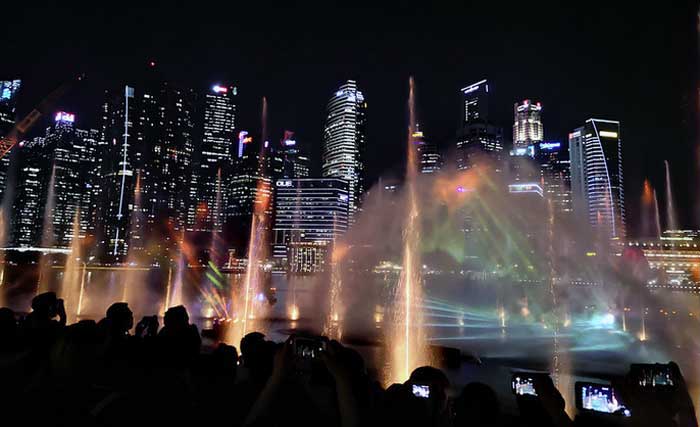Over the last few years, Singapore has become one of the most popular destinations in Asia and the continent's most travel-friendly country. With a diverse and world-class offer of entertainment, cuisine and shopping, who wouldn't want to visit this interesting island-state that went from that has experienced an outstandingly rapid growth over the last few decades?
With its economic architectural marvels - such as the Marina Bay Sands and the creatively shaped Art Science Museum - and its important historical sites - including Boat Quay and Palau Ubin - Singapore won't disappoint.
Customs, law and etiquette
Although Singapore is a very safe and easy place to travel, there are certain local customs and laws that must be followed. While some offenses might be seen as insignificant or inexistent in some countries, they might be seen as serious offenses in Singapore. For instance, it's against the law to spit anywhere on the island. Meanwhile, chewing gum is strictly prohibited for sale, import and personal use, so if you have any breath problems, you might want to resort to another method. You can also get a massive fine for littering, jaywalking and throwing cigarette butts on the ground. Some of these rules might seem harsh to you but just picture how clean and safe the island is. And if you thought you could get away for being a tourist, think again, as some officers will still fine you despite your ignorance of the law.
While drugs are illegal in most countries, Singapore takes a step further and getting caught with them can land you in some really dark waters. Although getting caught with small amounts of drugs might get you arrested, larger amounts might lead to charges of trafficking. In the best scenario, you would get a massive fine or jail time. That is why you should always check your luggage or not carry any stranger's belongings.
While it is not customary to tip on top of your bill, tipping is commonly accepted by the service industry. The majority of restaurants charge a 10 percent service charge plus 7 percent GST on top of your bill; you can find these extra costs indicated on the menu next to the prices. If restaurants do no already include a service charge, then you may add 15 to 20 percent tip. While tipping or service charge might be common in hospitality, it is not common to tip taxi drivers, hairdressers or others.
Best Time to Travel
Singapore may be a melting pot of cultures, but what makes the island such an appealing destination for sun-soakers is its fabulous warm weather year round, offering good conditions for outdoor activities. As Singapore is located in the tropics, temperatures rarely dip below the mid-20s, which means you must pack light clothes to beat humidity, and stay hydrated at all times. Don't worry about the heat at night; most places feature air conditioning. Although Singapore is warm and humid year round, the coolest season is from December to February and it rains more from June to October.
Remember that humidity makes temperatures feel higher, so always carry a water bottle and keep an eye out for fountains so you can refill it from time to time.
Although the severity of the haze varies from year to year, it is at its worst during September, therefore you must avoid it traveling during this time as the pollution can affect your health and it's not an ideal time for sightseeing.
Money
The local currency is the Singaporean dollar. Although all shops in major shopping centers accept cards for payments, street vendors accept cash only. While most major hotels and local banks offer currency exchange services, it is cheaper to do it at any of the many money exchanges throughout the city. You can also withdraw money from most of the ATMs scattered throughout the island.
Also keep in mind that Singapore may be expensive compared to other Asian countries. While there are many budget-friendly activities, others like visiting a museum (around $20), going out for drinks (one costs between $15-25) or eating out can be expensive if you are on a budget.
Duty-free rules
Although duty-free rules tend to be somewhat standard, they do vary slightly from country to country and it is important to know the ones from Singapore as they are very strict about what is give duty-free concession. When it comes to alcohol, duty-free rules vary depending on what you are buying. For instance, you can never exceed one liter of spirit but you can buy two liters of wine or beer. There is no duty-free allowance on cigarettes and tobacco products, and if they catch you bringing these from abroad, you might face massive fines. You are allowed to bring in one packet (not box) of cigs for personal use (not for sale).

